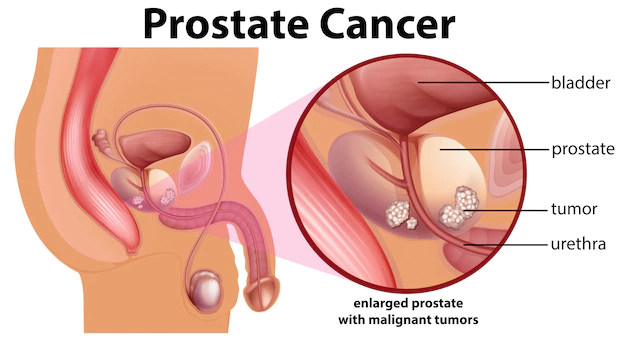
Most common Side Effects of Prostate Cancer Treatment and how to deal with them!
Prostate cancer is one of the most common urological cancers, seen in aged men. A Uro-oncologist generally suggests proctectomy (prostate removal surgery) or Radiation therapy as a treatment option for prostate cancer. Unfortunately, they do have some post treatment side-effects which the patients have to be prepared for. Below the are the most common side effects of prostate cancer treatment that often experienced by patients. Its important to note that most of these side-effects can be prepared for in advance which can help patients cope with them post-surgery.
- Urinary Incontinence: As the prostate is now removed, the bladder has to be connected to the urethra for the flow of urine. The very delicate sphincter at the base of the bladder which control the passage of urine often suffer certain trauma. Hence, patients experience incontinence post-surgery. However, bladder control is regained by most men within a years’ time. To Facilitate this surgeon or a physiotherapist will suggest some pelvic exercises to strengthen these sphincter muscles to help regain bladder control. Most patients see a greater improvement in control 3-6 months. The control only increases overtime for most patients. This is primarily seen in patients who have undergone proctectomy. Patients who undergo radiation therapy may experience some level of Urinary Incontinence during the radiation therapy period. Patients need to prepare themselves to wear adult diaper and pads until they can regain control.
- Erectile Dysfunction: One of most common area’s of concern in men is that of erectile dysfunction. The muscles that control erection are extremely delicate and any trauma to them may lead to ED. Hence, for patients undergoing prostate removal surgery whether they will suffer from ED or not, highly depends on the stage and type of cancer and that of the skill of the surgeon doing the surgery (for initial stage cancers).
- Infertility: infertility is one side effect of both the prostate cancer treatment options. Due to the anatomy of the urinary and male reproductive system, the Seminal glands also have to be removed when removing the prostate. While radiation therapy may affect the Seminal glands result in production of low quality seminal reducing the sperms mobility. Hence, if such patients plan to father children post-treatment, they could opt for Sperm Banking. They may also undergo a Sperm Retrieval Procedures wherein the sperm is extracted from the testicles and later used for IVF. Its best to discuss this with your treating doctor before initiating treatment.
- Bowel Dysfunction: This is mostly seen in patients who undergo radiation therapy. Patients may experience lowered bowl function during the months of radiation and normalises after 6-12 months
Lee haney: today\’s generation of bodybuilders are \’bigger but lack quality\’ – fitness volt dragon pharma anavar ghanaian bodybuilder william bonac wins second arnold classic title
Patients must be very open with their treating uro-oncologist and address any apprehensions they might have about the potential side-effects of prostate cancer treatment. As explained, most of these side-effects can be prepared for in advance. This will help the patient cope with them in a better manner and have a less stressful recovery. We hope this article was useful for patients.
https://www.pcf.org/about-prostate-cancer/prostate-cancer-side-effects/
https://www.ncbi.nlm.nih.gov/pmc/articles/PMC4501804/


